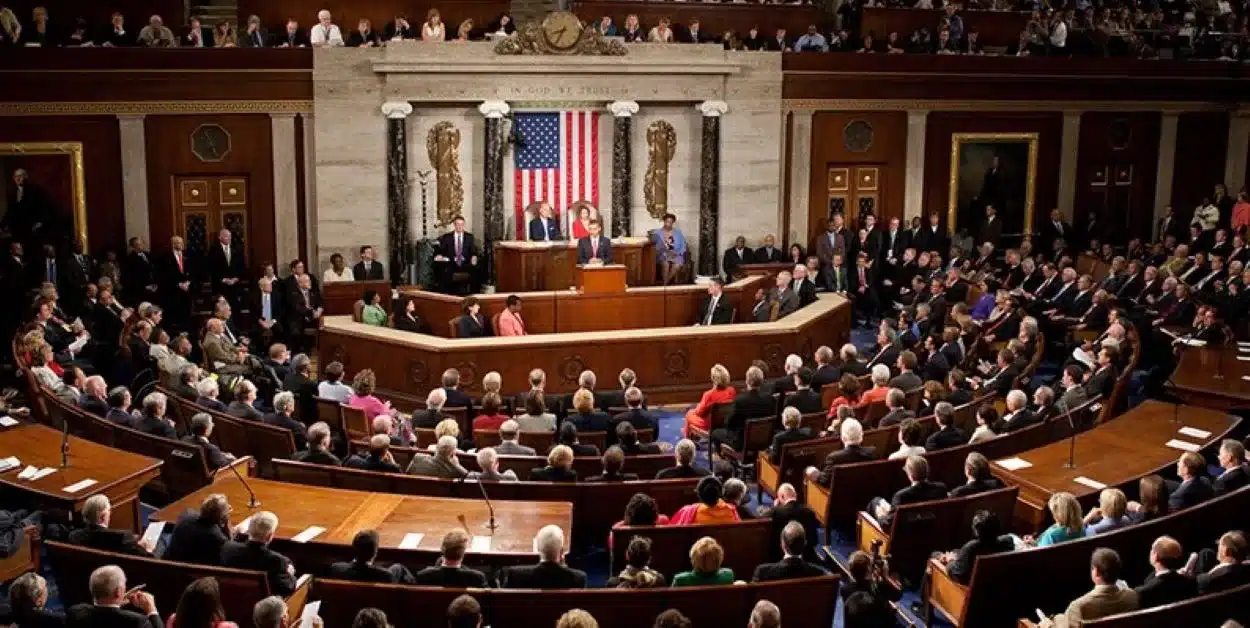The U.S. House of Representatives has taken a vital step in averting a potential economic disaster by voting to raise the national debt ceiling to prevent the nation from defaulting on its obligations.
The development follows negotiations between President Joe Biden and House Republicans, resulting in an agreement that suspends the debt limit until 2024 while mandating minor government spending cutbacks.
The bill’s passage, marked by a bipartisan vote of 314-117, is considered a significant stride towards economic rejuvenation and fiscal discipline. However, it must now gain approval from the Senate, setting the scene for potentially heated deliberations.
The successful passing of the bill in the House comes after weeks of intense dialogue and political maneuvering. There had been looming concerns about the Treasury depleting its funds, which could have led to a disastrous default. In addition, the Republican majority in the House, crucial for propelling the deal to the Senate stage, had to secure support from many Democrats since 71 conservatives voted against the agreement.
Kevin McCarthy, the leading Republican in Congress and the Speaker of the House highlighted the Fiscal Responsibility Act’s significance in reinstating the nation’s economic equilibrium. In addition, president Biden lauded the House’s decision, attributing the move to bipartisan cooperation and deeming it instrumental in protecting the economic recovery in the wake of the pandemic.
The spotlight now moves to the Senate, where the bill is expected to undergo further examination and possible objections. Senators are set to vote on the measure by the week’s end. Party leaders have urged their members to work together to expedite the bill’s passage and avoid a detrimental default. However, divergent views remain.
There have been concerns from defense proponents regarding the proposed $886 billion ceiling on defense expenditure, which aligns with President Biden’s recommendation. But conversely, Senators Jeff Merkley and Bernie Sanders have publicly expressed their unwillingness to back a bill that reduces critical federal programs, bolsters military spending, and refrains from taxing billionaires more heavily.
Mitch McConnell, the Republican Senate leader less involved in the House negotiations, is anticipated to rally at least a dozen votes from his party members. Simultaneously, the Democrats, holding the majority, are faced with preserving harmony among their members.
The Senate’s vote will dictate whether the increase in the debt ceiling becomes law, thereby securing the nation’s financial stability. A failure to pass the measure could result in drastic repercussions, such as triggering a recession, skyrocketing costs, and the loss of millions of jobs. Therefore, as the Senate gets ready to vote, the emphasis is on achieving a bipartisan agreement to ensure the country’s economic future.






